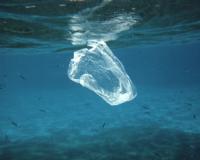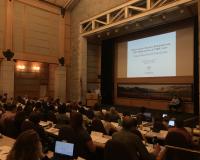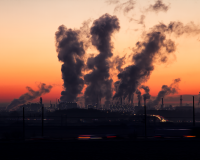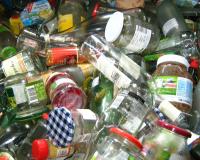
Vibrant Environment
Pollution Control
All | Biodiversity | Climate Change and Sustainability | Environmental Justice | Governance and Rule of Law | Land Use and Natural Resources | Oceans and Coasts | Pollution Control

It’s official: China isn’t taking our garbage anymore. Literally. Effective this year, China started restricting the import of 24 types of waste and established new thresholds for contaminants such as food residues and metals. Why does that create a significant problem for the United States? Consider this: China imported 776,000 metric tons of reclaimed plastic and 13 million metric tons of recycled paper from the United States in 2016 alone.

June is National Healthy Homes Month, a good time for policymakers to consider strategies for reducing exposure to air pollutants inside homes. It’s also a good time to highlight new policies in California and New York that aim to improve home indoor air quality and that are likely to have impacts beyond those two states.

Restoring and protecting our country’s lakes, rivers, and streams is difficult, especially with populations increasing and budgets in decline. It requires innovation, partnerships, sound science, and effective means of communicating.
ELI has long worked with the agencies tasked with restoring and protecting our waters. Earlier this month, we held the 2018 National Training Workshop for CWA §303(d) Listing and TMDL Staff at the National Conservation Training Center in Shepherdstown, West Virginia....

In March of last year, President Trump issued fossil-fuel friendly Executive Order No. 13783, Promoting Energy Independence and Economic Growth. Section 5 of this Order directed agencies to discontinue use of the “social cost of carbon” (SCC), a protocol developed under the Obama Administration to monetize the impacts of climate-related disasters and disruption.

Recycling is perhaps the most prevalent pro-environmental activity at the household level. Household recycling efforts may be influenced by supportive nudges and, in some cases, laws that mandate recycling behavior. But unlike efforts such as decreasing household energy usage, success in recycling also hinges on governmental support: there must be some mechanism for collecting the recycled materials and converting them into useable commodities. Government entities, and in some cases private waste collection firms, provide for these recycling amenities.

On August 28, 2017, the Intermediate Court of Zhongwei City, Ningxia Hui Autonomous Region, approved the mediation agreements reached between China Biodiversity Conservation and Green Development Foundation (GDF) and eight polluters involved in the Tengger Desert pollution case, ending one of China’s most significant environmental public interest cases.

Just over five months have elapsed since Hurricane Harvey battered the Texas Coast, dropping more than 50 inches of rain on parts of the Houston area. The storm’s devastation was swift, killing 88 people and displacing many thousands. Yet, Harvey’s full impacts continue to unfold. Beyond imposing huge material losses, the storm has taken a significant toll on the health of those in its wake. It may be wise to understand storm events like Harvey not only as short-term physical disruptors, but as public health crises that will likely unfold over many years, long after media attention and political will to respond may have cooled.

In a not-so-far-away future, environmental management will be done largely by algorithm. Here is how that could happen . . . .
In 2015, two graduates from Stanford business school, William Glass and Eden Kropski, founded a firm to produce and sell high-performance sportswear made entirely of synthetic fibers bioengineered from yeast microbes. The product was a runaway success and low-impact, but shipping it around the planet wasn’t.

The U.K. government cites shale gas as a “safe and environmentally sound” source of new energy and is actively promoting development of the fossil resource—using hydraulic fracturing and horizontal drilling—in hopes of emulating the United States’ shale gas “revolution.”

Flushable wipes have proven to not be so flushable and are wreaking havoc on some of the world’s major cities. Municipalities like New York City, spend millions of dollars to remedy clogging issues the wipes cause. New York City officials said in 2015 that "wipe-related equipment problems," have cost the city more than $18 million since 2010.